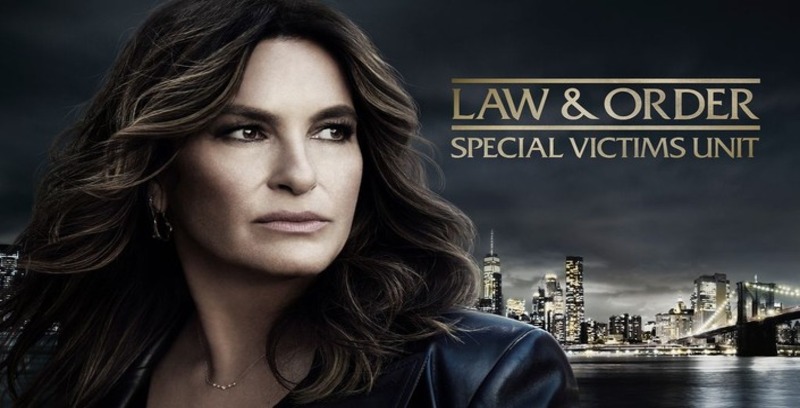Without giving too much away the series slowly goes through the motions of Aulus seeking to conquer Britain through two rivalling clans, with King Pellenor's being the one that's primarily the focus, as his family falls apart when his daughter Kerra tries to take matters with the Romans into her own hands and is then thought to be a traitor. Veran and the Druids are called upon by the King to make a decision that comes with surprising results, especially since Aulus also tried to make a deal with Veran and, whose blind faith, makes him pleasantly more dangerous character to follow.
Other plots centre around Cait trying to save her father, two Roman soldiers Brutus & Philo wondering into trouble and having some existential moments of crises, Vitus getting more abused, and traces of slow mutiny emerging within the Roman army. There's also love triangles causing family strife within the tribe between Kerra & warrior Lindon (Stanley Weber), as Lindon is married to the spiteful Amena (Annabel Scholey) and Amena also seems to have a thing of Kerra's brother Phelan, but Phelan is also teased into another alleged prophecy by the niece of the other tribe's Queen, Andedia, named Ania (Liana Cornell), who claims to be a Goddess called Brenna. (And for the record, I found the Phelan & Ania pairing towards the end of the season was one of the more delightful and comedic story lines of the season).
Viewers looking for historic accuracy will be very disappointed with this series, as it operates with a with a "new age" take on the end of Britain's iron age, in which the series' mythology is often a factor, but not better explained until the finale three episodes of the first season, which could be frustrating for some. The concept of Gods, Demon Kings, prophecies, spells, tangling with certain animals, the will of the dead, and trips to underworld are all very present plot devices and interfere with various characters' choices, which presents a huge theme of calling into question ones own faith verses what's really true.
 The cinematography however, is often one of best things about the series. There are such exquisite outdoor shots of the breath-taking scenic landscape that at times could be compared to Outlander or Game of Thrones. In some ways though, it's a shame when contrasted to often mediocre or simplistic darker interior scenes and/or choices & techniques used when characters are experiencing thee metaphysical, as the it's often those scenic shots that come off as more magical and majestic, while the others are more darkly-drunken, but perhaps one could argue the contrast is about the purity of Island becoming more corrupted upon the invasion?
The cinematography however, is often one of best things about the series. There are such exquisite outdoor shots of the breath-taking scenic landscape that at times could be compared to Outlander or Game of Thrones. In some ways though, it's a shame when contrasted to often mediocre or simplistic darker interior scenes and/or choices & techniques used when characters are experiencing thee metaphysical, as the it's often those scenic shots that come off as more magical and majestic, while the others are more darkly-drunken, but perhaps one could argue the contrast is about the purity of Island becoming more corrupted upon the invasion?As for the cast there is some great talent here. Like mentioned above I found myself fascinated with the story of Cait played by young Eleanor Worthington-Cox, whom becomes much more of the centrepiece. Actors like David Morrissey, Ian McDiarmid, Zoe Wanamaker, and Hugo Speer bring a Shakespearean facility to the series. While Mackenzie Crook, Kelly Reilly, Nikola Lie Kass, Liana Conell, and Barry Ward provide good character acting and perhaps add some flavor with more diverse personality that helps relate to the contemporary, as a reminder of something universally and timelessly revolutionary.
Where Britannia seems to fall short is in it's execution of plots in combination with it's eclectic anarchic spirit. The first five or six episodes have a whole lot of mystical (and pyschosexual) things happen, without a lot of explanation for why or what is exactly happening, which also doesn't help the audience feel very deeply for the majority of characters, since one never knows them long enough before they find themselves changed or philosophically at odds with other characters for the audience to feel particularly attached, --and where for a series that tends to take it's 1960's pop-culture psychedelia approach (It's opening theme song is Donovan's Hurdy Gurdy Man) rather seriously, doesn't either generate a lot of laughs or great suspense. It's problems are mostly not being able to fully captivate early on.
With that being said, the series does get better and becomes much more interesting in it's final three episodes, with episode six being more of a turning point that comes with a dramtic ending for Cait and Kerra in particular. (And it doesn't hurt that actress Laura Donnelly shows up in episode 8 as a pretty bad *ss character named Hella). It's true it can't live up to well-crafted historically-inspired fantasy shows like Game of Thrones or Outlander, nor does it draw the kind of horror-supernatural-suspense-thriller of say something like that of Fortitude or the short-lived Helix, but rather it tries to be inventive and brings something much closer to classic literary epics like Beowulf, The Iliad and The Odyssey, or The Aeneid, but with Shakespearean overtones similar to plays like Julius Caesar, Mark Antony, The Winter's Tale, or Othello. It's closest TV comparison might be something like Vikings meets Into the Badlands.
Over all I feel the first season is above average and is trying hard to be something different. It's not a series I would recommend to just anyone, nor would I consider it a "must watch", but instead understand it's an acquired taste for those that are patient, open-minded to historical interpretation for the sake of a story, are looking for a film adaptation of a literary epic, or want to have something differant to binge watch watch on a rainy day.






















